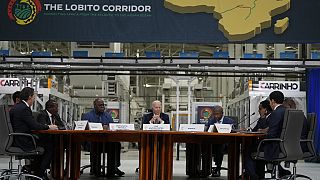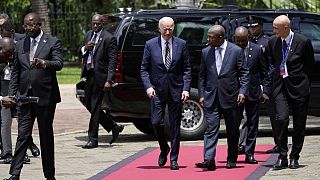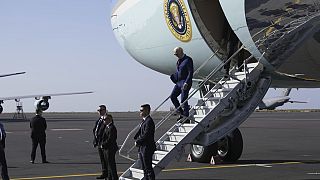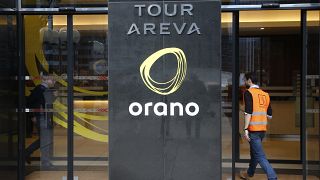Angola
U.S. President Joe Biden toured the Lobito port that will provide an outlet on the Atlantic Ocean and ideally a route to the West for Africa's minerals and other exports. Under a towering blue crane, a banner read: “The Lobito Corridor Connecting Africa from the Atlantic to the Indian Ocean.”
Biden announced that Congo had also committed a new $553 million direct loan to the railway to upgrade and operate more than 1,000 kilometers of line from Lobito to the Congo border.
The administration says it currently can take cargo loads of materials about 45 days to get from eastern Congo or Zambia to the market and usually involves going by truck to South Africa. Test loads run using the new rail corridor made the same journey in around 40 to 50 hours.
China, meanwhile, already has heavy investments in mining and processing African minerals and has used its Belt and Road Initiative infrastructure strategy to promote its economic and political influence around the world.
In September, China said it had signed a deal with Tanzania and Zambia to revamp a separate railway line going east from Zambia to Tanzania’s Dar es Salaam on the east coast of Africa.
The countries had previously worked together to build the railway line in the 1970s, but it fell into disrepair. China’s move to renovate it — announced on the sidelines of this year’s China-Africa forum — is seen by some analysts as the Chinese response to the Lobito Corridor.
A senior U.S. administration official called the Lobito Corridor the heart of competing with China, not as a political adversary but from a business standpoint.
The idea is rather than pumping in aid, Washington will attempt to grow U.S. influence by promoting projects that can spark investment and therefore help communities and countries over the long haul. The Lobito Corridor has become a model approach that the U.S. is looking to replicate in other parts of the world, said the official, who briefed reporters during Biden's Angola visit on condition of anonymity to offer project details that haven't yet been made public.
The corridor won't be completed for years, meaning much of the continued work would come during the administration of Republican Donald Trump, who takes office Jan. 20. The Biden White House says that Republicans in Congress and elsewhere have supported past efforts to promote African business interests through targeted investments and that such initiatives have appealed to Trump and his key advisers in the past.











01:34
U.S. President Biden visits slavery museum in Angola
00:49
Biden arrives in Angola for his long-awaited sub-Saharan Africa visit
01:05
IMF highlights progress in Egypt’s reforms and global economic updates
01:10
Spain’s left-wing government stands out on migration policy in the EU
01:11
Climate crisis takes centre stage at G20 summit in Brazil
01:26
Zimbabwe’s Climate-Smart Agriculture: Empowering Farmers through Resilience and Innovation